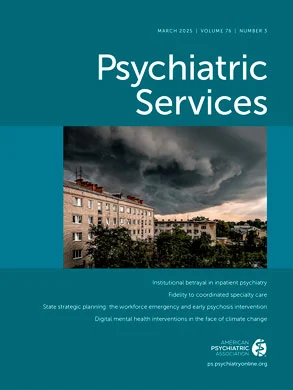In this issue, three Best Practices columns and an Open Forum commentary address the use of coercive practices in recovery-oriented care. However, a service system strained for resources and experiencing high staff turnover and demoralization cannot create and sustain a recovery orientation. Indeed, rates of coercion are likely to be high in such a system. The most promising way to reduce coercion is to create an accessible recovery-oriented system that draws people into treatment because it provides what they need and want, thereby reducing the need to push them into services.
A recovery-based mental health system uses coercion only when necessary to prevent harm or arrest severe deterioration, only as a last resort, and always with respect for the person's dignity. Recovery envisions a process by which persons experiencing a mental disorder take control of their lives, including planning for care in a crisis, assisted by caring partners. For those who are strongly treatment-resistant or have not begun the recovery process, there may be no alternative to coercion. As systems are transformed, however, more clients will undertake explicit crisis planning, which involves execution of advance directives.
Virginia is undertaking a systemwide effort to promote completion of advance directives by mental health consumers with support from community agencies, hospitals, the bar, and consumer advocacy groups. A Web site provides access to resources, along with information and guidance about the legal effect of executing an advance directive under Virginia law (
www.virginiaadvancedirectives.org).
As discussion and execution of advance directives are incorporated into routine care and into peer-driven activities, it is expected that coercive interventions will be needed less often and that, when needed, they will be provided in accord with the client's previously expressed preferences, making the interventions less likely to be experienced as aversive. Ideally, advance planning will shape the way families, clinicians, and even law enforcement officers and judges respond when a client's decision making becomes impaired, allowing them to share information and provide treatment and support in accord with previous authorizations. Indeed, the term “coercion” may be out of place in these contexts because consent, when needed, has been provided by the client in advance.
From this perspective, use of advance directives, together with agreements for leveraged community treatment, represent an effort to shift the legal model of care, even in crisis, “from coercion to contract.” Community services providers should be encouraged or required to promote the use of advance directives. In time, the number and proportion of clients with executed advance directives will be a useful performance measure of progress toward a recovery-oriented system.

